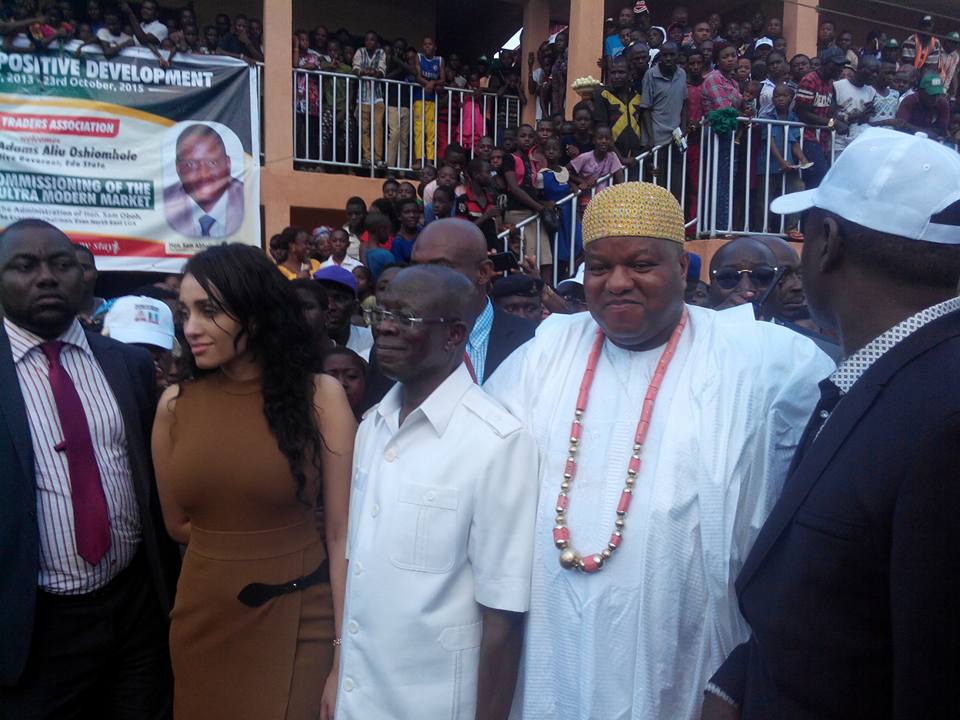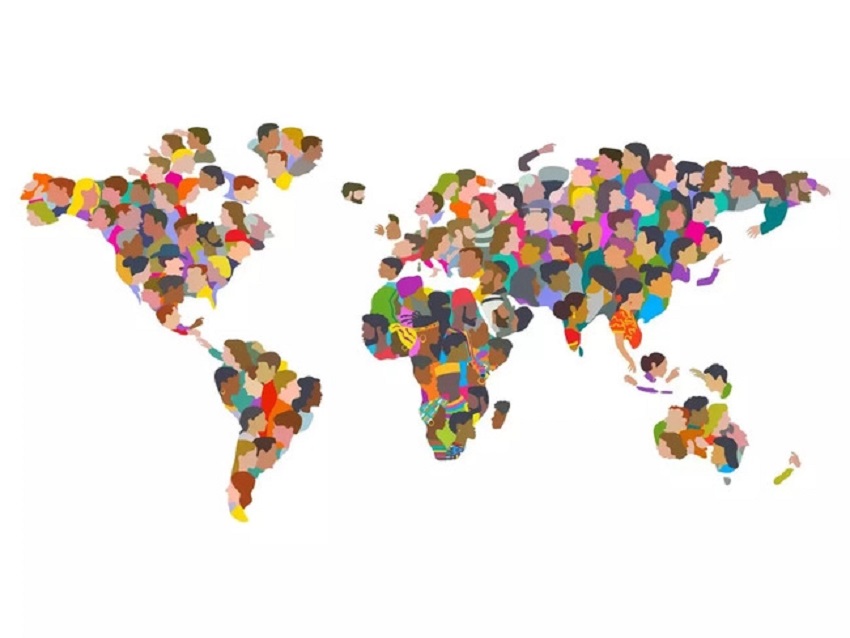General
BREAKING: Edo Govt Dethrones Uromi Traditional Ruler


The embattled traditional ruler of Uromi land in Esan North local government area of Edo State has been dethroned by the Edo State government.
The sacked monarch, Mr Anselm Edenojie, who is the Ojuromi of Uromi, was deposed by the state government after he was earlier suspended for one year from the throne.
A letter dated Wednesday, November 9, 2016 titled ‘Deposition from Office as Ojuromi of Uromi: Addendum’ conveyed the message of the state government to him.
In the letter signed by Secretary to the State Government, Prof Julius Ihonvbere, the traditional ruler was told to “please be informed that the initial Exco decision of 26th October 2016 has been further affirmed.
“Consequently, you have been deposed as the Ojuromi of Uromi pursuant to Section 28 (i & ii) of the Traditional Rulers & Chiefs Law, 1979.
“Kindly, therefore, disregard our letter of 4th November 2016 on the subject “Re: Letter of Apology to Edo State Government.”
Trouble started for the deposed monarch when he was told to apologise to a woman he allegedly assaulted because she reportedly refused to vote for his preferred party in the last governorship election in the state.
Instead of apologising, it was the woman that publicly begged the monarch on her knees, while the Ojuromi remained seated on the throne and his crown.
During this time, he was still under suspension for seven days.
His action infuriated the state government, which resulted to him getting one year suspension before this lates development.
General
Nigeria’s Population Projected to Reach 237.5 million by 2025

By Adedapo Adesanya
The latest United Nations data, as estimated by Worldometer, has projected that Nigeria will have a population of 237,527,782 by 2025.
According to the report, the country’s population will grow from 235,072,214 recorded in December 2024.
The statistics showed that between 2023 and 2024, the country’s population increased by 4,796,533.
This is as the US Census Bureau estimates released Monday, the world population increased by more than 71 million people in 2024.
This is a slight slowdown from the 75 million increase witnessed in 2023.
Worldometer’s report said Nigeria’s population is equivalent to 2.85 per cent of the total world population and the country ranks number six in the list of countries (and dependencies) by population.
The data places the most populated cities to be Lagos with 15,388,000 people, Kano at 4,910,000, Ibadan at 3,649,000, Abuja at 2,690,000 and Port Harcourt at 2,120,000, with 53.9 per cent of the population in the urban region at 125,447,884 people in 2024.
The population density in Nigeria is 255 per Km² (662 people per mi²) and the total land area is 910,770 Km² (351,650 sq. miles), the report said.
“The median age in Nigeria is 17.9 years while the life expectancy at birth for both sexes is 54.6 years.
“Females have a life expectancy of 54.9 years at birth while that of males is 54.3 years,” the report said.
The data projected the world population to reach 8.09 billion people on Wednesday, January 1, 2025.
Recall that Nigeria alongside seven other nations will push the world population to 9.7 billion in 2050 before reaching a peak of around 10.4 billion in the 2080s to 2100.
According to the United Nations, more than half of the projected increase in the global population up to 2050 will be concentrated in eight countries: the Democratic Republic of the Congo, Egypt, Ethiopia, India, Nigeria, Pakistan, the Philippines and the United Republic of Tanzania.
General
AfDB to Give Nigeria $2.2bn for Special Agro-Industrial Processing Zones

By Adedapo Adesanya
The African Development Bank (AfDB) is set to release $2.2 billion in funding to develop Special Agro-Industrial Processing Zones (SAPZ) across Nigeria, a move designed to transform the nation’s agriculture sector and tackle food insecurity.
Mr Abdul Kamara, the Director General of the AfDB, Nigeria Office, made the announcement during Channels Television’s 2024 End-of-Year Review with the theme Focus on the Agriculture Sector, Food Security, Research, and AfDB Investments.
Mr Kamara revealed that the disbursement will begin in 2025, with construction and mobilization starting in selected states.
“Specifically from next year (2025), we will see contracts signed and mobilization and construction on-site will start in some states. Of course, not all the states will start together,” he stated.
According to him, the SAPZ initiative is expected to significantly boost Nigeria’s agricultural productivity, create jobs and strengthen value chains, cementing the country’s position as a leader in agro-industrial development in Africa.
The fund is designed to drive the development of agro-industrial hubs, aggregation centres, and agricultural transformation programs that aim to enhance food security and unlock economic opportunities.
According to Mr Kamara, while the AfDB Board approved the SAPZ program in 2021, startup delays were caused by the need for agreements with the federal government and co-financiers, including the International Fund for Agricultural Development (IFAD) and the Islamic Development Bank (IsDB).
“When you approve a programme, you have to have it signed with the Federal Government, especially of that magnitude. You also have to have it signed with the co-financiers. The bank had to bring in IFAD and the Islamic Development Bank as co-financiers,” he explained.
The programme will initially target seven regions, including the Federal Capital Territory (FCT), Cross River, Ogun, Oyo, Kaduna, Kano, and Kwara. Kamara highlighted ongoing collaboration with state governors to streamline processes.
“In all the seven states, we are now in conversation and are publishing the bidding documents so that we’ll shorten the process. The project is picking up, and that is not strange for very complex projects,” he said.
General
Nigeria’a Broad Money Supply Jumps 51% to N108.96trn

By Adedapo Adesanya
Nigeria’s Broad Money Supply (M2) increased by 51 per cent year-on-year to N108.96 trillion in November 2024, spurred by domestic borrowings by the federal government from the private sector.
According to the Central Bank of Nigeria’s Money and Credit Statistics data released on Monday, these latest figures were higher than the N72.03 trillion in the corresponding period of 2023.
Broad Money Supply (M2) represents cash and demand deposits as well as savings deposits, money market deposits, and time deposits.
According to the report, the M2 recorded a six-month increase since April 2024.
The trend, however, reversed in October 2024, declining month-on-month by 1.5 per cent to N107.7 trillion from N109.4 trillion in September 2024, before shooting up again by 1.2 per cent to N108.96 trillion in November.
The report also showed that the money supply increase followed positive component changes.
Quasi-money, including savings deposits, time deposits, and other near-money assets, also rose marginally.
The data showed that Quasi Money grew by 1.96 per cent year-on-year to N72.7 from N71.3 trillion in November 2023.
Similarly, Demand Deposits increased by 34.4 per cent year-on-year to N31.6 trillion in November 2024 from N23.2 trillion in November 2023.
Currency outside banks increased by 50.9 per cent year-on-year to N4.65 trillion in November 2024 from N3.08 trillion in November 2023.
Narrow money (M1), also grew by 38 per cent year-on-year to N36.3 trillion in November 2024 from N26.3 trillion in November 2023.
According to the CBN, credit to the government increased by 54 per cent year-on-year to N39.6 trillion in November 2024 from N25.7 trillion in November 2023.
On the other hand, credit to the private sector rose year-on-year by 27 per cent to N75.96 trillion in November 2024 from N59.7 trillion in November 2023.
This resulted in a 91 per cent year-on-year rise in net domestic credit of N115.6 trillion in November 2024 from N60.5 trillion in the corresponding period of 2023.
-

 Feature/OPED5 years ago
Feature/OPED5 years agoDavos was Different this year
-
Travel/Tourism8 years ago
Lagos Seals Western Lodge Hotel In Ikorodu
-

 Showbiz2 years ago
Showbiz2 years agoEstranged Lover Releases Videos of Empress Njamah Bathing
-

 Banking7 years ago
Banking7 years agoSort Codes of GTBank Branches in Nigeria
-

 Economy2 years ago
Economy2 years agoSubsidy Removal: CNG at N130 Per Litre Cheaper Than Petrol—IPMAN
-

 Banking2 years ago
Banking2 years agoFirst Bank Announces Planned Downtime
-

 Sports2 years ago
Sports2 years agoHighest Paid Nigerian Footballer – How Much Do Nigerian Footballers Earn
-

 Technology4 years ago
Technology4 years agoHow To Link Your MTN, Airtel, Glo, 9mobile Lines to NIN























